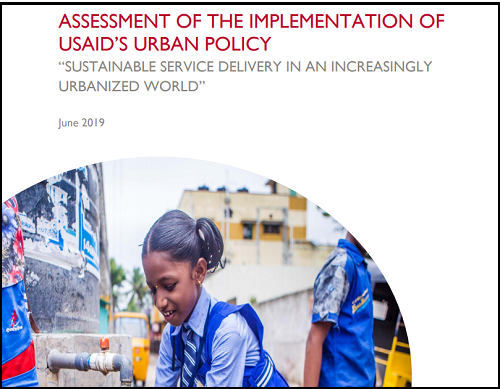Assessment of the Implementation of USAID’s Urban Policy
This assessment examines the extent to which USAID has implemented the Urban Policy as intended since its release in 2013. It assesses the progress, challenges, and lessons learned and recommends actions that the Agency can take to improve the effectiveness of the Urban Policy for the next five years.
